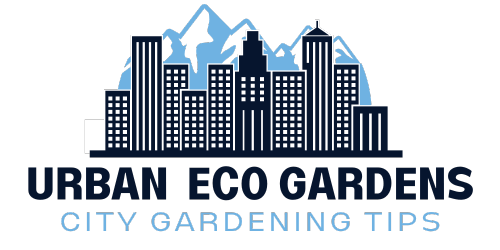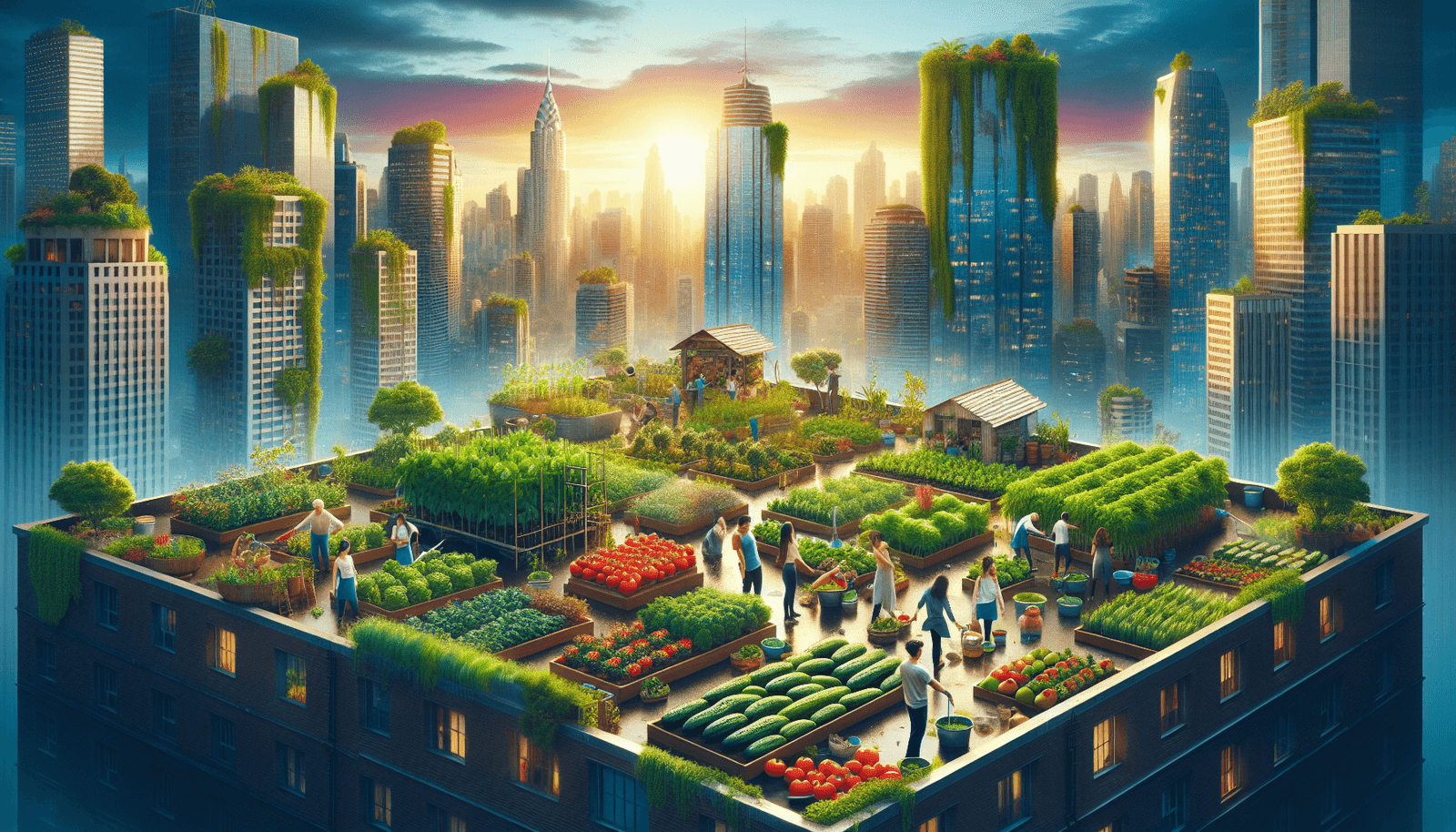Imagine a city that not only embraces towering skyscrapers and bustling streets, but also vibrant green spaces teeming with life. In this urban oasis, the concept of sustainability takes center stage, as residents and businesses alike come together to transform vacant lots and rooftops into productive farms. Urban farming, with its innovative techniques and community-driven efforts, holds immense potential to make a city more sustainable. From reducing food miles and promoting green spaces to providing local jobs and educating communities about food production, urban farming offers a holistic approach that not only nourishes the body but also enriches the environment and strengthens the social fabric of a city. Let’s explore how urban farming is revolutionizing the way we think about sustainability.
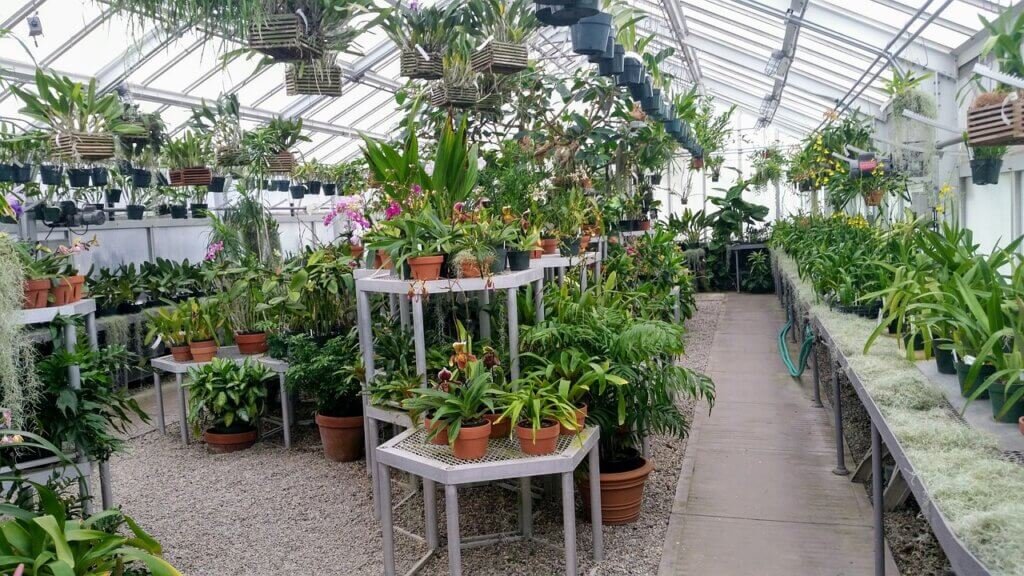
Reducing Food Miles
Decreased Transportation Emissions
Urban farming plays a crucial role in reducing food miles, which refers to the distance that food travels from the farm to your plate. By growing produce within the city, the need for long-distance transportation is significantly reduced, thereby decreasing transportation emissions. This not only helps to mitigate climate change but also improves the air quality in urban areas.
Supporting Local Economy
Urban farming also supports the local economy by creating employment opportunities and fostering community engagement. When you buy locally-grown produce, you are not only supporting the farmers who grow it but also the local businesses and markets that distribute and sell these products. This circulation of money within the community helps to strengthen the local economy and build resilience.
Promoting Food Security
Urban farming contributes to enhancing food security within a city. By having locally-grown food sources, cities can become less reliant on imports and vulnerable to disruptions in the global food supply chains. Additionally, urban farming allows for a more diverse range of crops, reducing the risk of monoculture and promoting a more resilient food system. This ensures that city residents have access to fresh, healthy, and nutritious food options at all times.
Reducing Food Waste
Utilizing Food Surplus
One of the significant benefits of urban farming is the ability to utilize food surplus effectively. With urban farms strategically located within the city, excess produce can be easily redistributed or donated to local organizations, food banks, or community kitchens. This helps to prevent food waste and ensures that good-quality food is not being discarded unnecessarily.
Composting Organic Waste
Urban farming also allows for the effective management of organic waste through composting. Food scraps, plant trimmings, and other organic materials can be composted locally, producing nutrient-rich soil amendments that can be used to nourish the urban farms and gardens. Composting organic waste not only reduces landfill waste but also creates a closed-loop system, where waste is transformed into valuable resources.
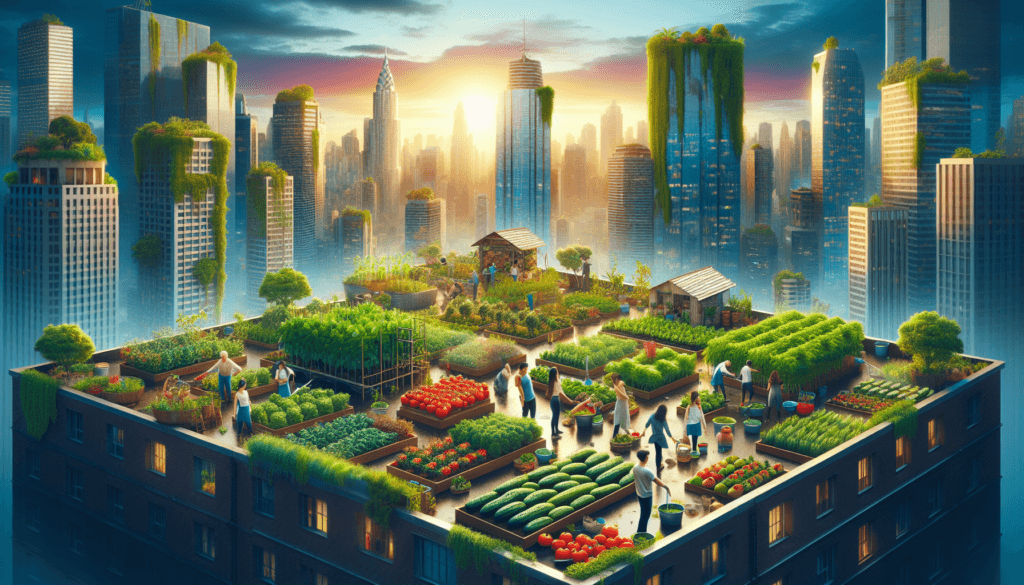
Conserving Water
Using Rainwater Harvesting Systems
Urban farming promotes water conservation through the use of rainwater harvesting systems. These systems collect rainwater from rooftops, paved surfaces, or other catchment areas and store it for later use in irrigation. By harnessing rainwater, urban farmers reduce their reliance on municipal water supplies, which are often energy-intensive and rely on the extraction of water from distant sources. Rainwater harvesting systems contribute to sustainable water management and promote water conservation practices in urban areas.
Implementing Efficient Irrigation Methods
In addition to rainwater harvesting, urban farmers also implement efficient irrigation methods to conserve water. Drip irrigation and other targeted watering techniques deliver water directly to the plant roots, minimizing water loss through evaporation or runoff. By using these methods, urban farmers can optimize their water usage and ensure that plants receive the right amount of water without wasting this precious resource. Efficient irrigation practices not only conserve water but also reduce energy consumption associated with water pumping and treatment.
Mitigating Urban Heat Island Effect
Increasing Green Spaces
Urban farming plays a vital role in mitigating the urban heat island effect by increasing green spaces within the city. Vegetation, such as trees, plants, and urban farms, helps to absorb and dissipate heat, reducing the overall temperature in urban areas. By transforming vacant lots or unused spaces into thriving green areas, urban farmers contribute to cooling the environment and creating a more comfortable and livable city for everyone.
Providing Shade and Cooling
In addition to increasing green spaces, urban farms also provide shade and cooling effects. Vegetation acts as a natural shade provider, reducing the heat absorbed by buildings, pavements, and other urban surfaces. Rooftop gardens, for example, can insulate buildings, reducing the need for artificial cooling systems and lowering energy consumption. By incorporating green elements into the urban landscape, urban farming contributes to mitigating the urban heat island effect and improving the overall microclimate of the city.
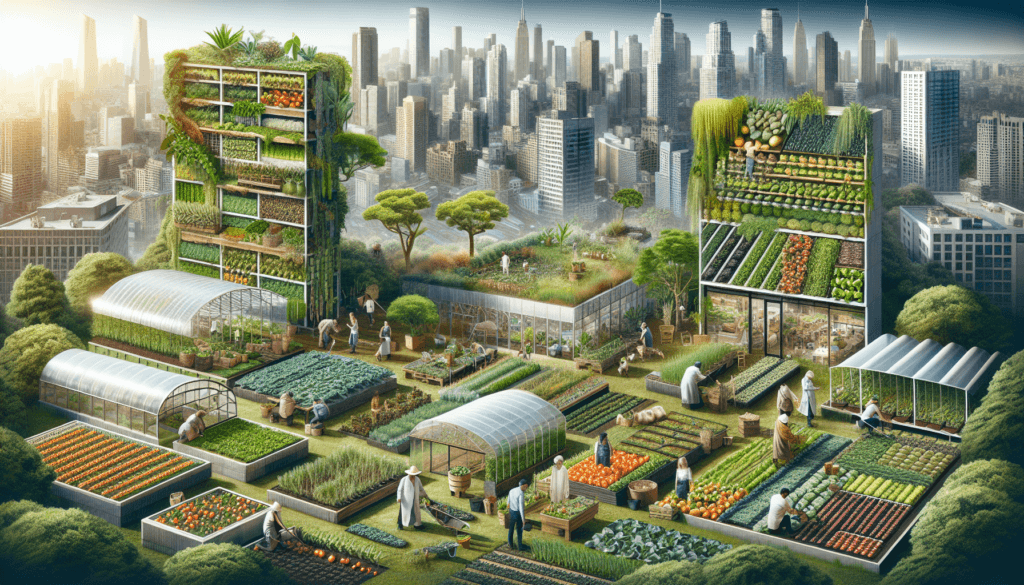
Improving Air Quality
Carbon Sequestration
Urban farming contributes to improving air quality through carbon sequestration. Plants absorb carbon dioxide from the atmosphere during photosynthesis, helping to reduce greenhouse gas concentrations. By increasing vegetation cover through urban farms, the overall carbon footprint of the city can be reduced. Moreover, urban farms can also act as carbon sinks, storing carbon in the soil and helping to combat climate change and air pollution simultaneously.
Filtering Pollutants
Urban farming also acts as a natural air purifier by filtering pollutants from the air. Plants have the ability to absorb and break down harmful gases and pollutants, including nitrogen dioxide and volatile organic compounds (VOCs). These harmful substances are released from vehicle emissions, industrial activities, and other sources. By incorporating urban farms into the urban landscape, the air quality can be significantly improved, creating a healthier and more sustainable living environment.
Creating Wildlife Habitats
Biodiversity Support
Urban farming plays a crucial role in creating wildlife habitats within the city. By providing green spaces and diverse plant species, urban farms attract a wide range of local wildlife, from pollinators such as bees and butterflies to birds and small mammals. This biodiversity support is essential for maintaining healthy ecosystems and promoting ecological balance. Urban farming helps to create habitats for these species, contributing to the conservation of urban biodiversity and enhancing the overall ecological resilience of the city.
Enhancing Ecosystem Services
In addition to supporting biodiversity, urban farming enhances ecosystem services within the city. Ecosystem services refer to the benefits that nature provides to humans, such as pollination, soil fertility, and water purification. Urban farms contribute to these services by creating habitat corridors, improving soil health through organic farming practices, and reducing water pollution through natural filtration. By integrating urban farms into the urban fabric, cities can enhance their ecological value and create more sustainable and resilient communities.
Enhancing Community Engagement
Educational Programs
Urban farming provides an excellent platform for community engagement and education. Through educational programs, workshops, and volunteering opportunities, urban farms allow residents to learn about sustainable farming practices, environmental stewardship, and the importance of locally-grown food. These programs not only empower individuals with valuable knowledge and skills but also foster a sense of community pride and connection to the environment. By involving the community in urban farming initiatives, cities can create a more sustainable and engaged citizenry.
Social Cohesion
Urban farming also promotes social cohesion within the community. As people come together to grow food, tend to urban farms, and participate in community events, social bonds are formed, and a sense of belonging is cultivated. Urban farms provide a common space where individuals from different backgrounds and demographics can interact, share experiences, and work towards a common goal. This sense of community and social cohesion strengthens the fabric of the city and helps to build a more inclusive and sustainable society.
Increasing Access to Fresh Produce
Food Deserts Elimination
Urban farming plays a crucial role in increasing access to fresh produce, particularly in food deserts. Food deserts are areas where residents have limited or no access to affordable and nutritious food options. By establishing urban farms within these areas, fresh produce can be grown and made available to the local community, reducing the reliance on unhealthy processed foods and improving overall food security. Urban farming helps to eliminate food deserts and ensures that all residents have equitable access to fresh and healthy food choices.
Improved Health Outcomes
The availability of fresh and locally-grown produce has a direct impact on the health outcomes of urban dwellers. By consuming food that is free from harmful pesticides, preservatives, and additives, individuals can improve their overall health and well-being. Fresh produce is rich in essential vitamins, minerals, and antioxidants, which are necessary for maintaining a healthy immune system and preventing chronic diseases. Urban farming promotes a healthier lifestyle and contributes to improved health outcomes within the city.
Promoting Sustainable Land Use
Utilizing Vacant Lots
Urban farming optimizes land use by utilizing vacant lots and underutilized spaces within the city. Often, these spaces lie dormant or are susceptible to illegal dumping and other forms of urban blight. By transforming these vacant lots into productive urban farms, the city can maximize its land resources while simultaneously improving the aesthetics and functionality of the urban environment. Urban farming contributes to sustainable land management by repurposing unused land and making it productive for the community.
Repurposing Rooftops
Another innovative way to promote sustainable land use is through rooftop farming. Urban farms on rooftops utilize previously unused space, transforming it into green oases. Rooftop farming not only provides a viable solution for limited land availability in urban areas but also offers additional benefits such as stormwater management and insulation. By repurposing rooftops for farming, cities can optimize land use, increase green spaces, and enhance the overall sustainability of the built environment.
Reducing Energy Consumption
Utilizing Renewable Energy
Urban farming contributes to reducing energy consumption by utilizing renewable energy sources. Solar panels, for example, can be installed on rooftops of urban farms to generate clean and sustainable energy for various farming operations, such as lighting or irrigation systems. By harnessing renewable energy, urban farmers reduce their reliance on fossil fuels and contribute to a greener and more sustainable energy future. This shift towards renewable energy also helps to mitigate climate change and reduce greenhouse gas emissions.
Reducing Cooling Loads
In addition to utilizing renewable energy, urban farming also helps to reduce cooling loads in buildings. By incorporating rooftop gardens or green walls into the urban landscape, the heat absorbed by buildings can be significantly reduced. This, in turn, decreases the need for artificial cooling systems, resulting in lower energy consumption and reduced carbon emissions. Urban farming contributes to reducing the urban heat island effect and creating a more energy-efficient built environment.
In conclusion, urban farming plays a vital role in making a city more sustainable. Through reducing food miles, minimizing food waste, conserving water, mitigating the urban heat island effect, improving air quality, creating wildlife habitats, enhancing community engagement, increasing access to fresh produce, promoting sustainable land use, reducing energy consumption, and implementing renewable energy sources, urban farming offers numerous benefits for both the environment and the community. By embracing urban farming practices, cities can create greener, healthier, and more sustainable living spaces for all.
